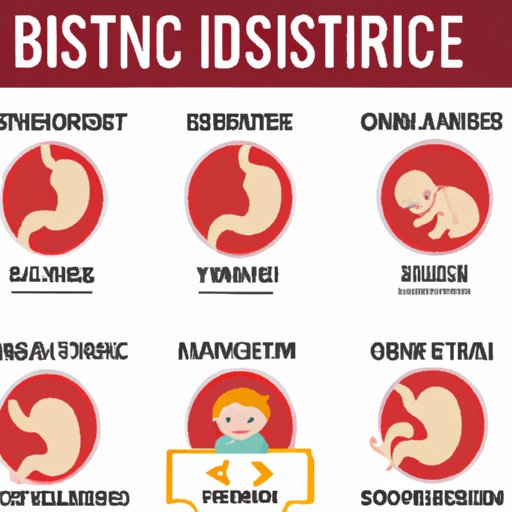
Introduction
Keeping babies’ digestion regular is crucial for their health and comfort. Yet, many new parents struggle with how to get their baby to poop. In this guide, we will explore everything you need to know to help your little one poop easily and regularly.
Understanding Your Baby’s Bowel Movements: A Comprehensive Guide to Normal Infant Digestion
It’s important to understand what is normal for infant bowel movements. For newborns, pooping after every feeding is normal. However, as they grow, the frequency can vary from once a day to once every few days. The texture and color of baby poop can also change and can be an indicator of their health. Bright green, hard pellets or white poop could mean there is a problem. As babies start eating solids, their poop may change and become more solid.
5 Natural Remedies to Help Your Little One Poop
If your baby is struggling to poop, there are many natural remedies that can help. Warm baths, bicycle legs exercise, massage, tummy time, and prune juice are all great options. Warm baths can help relax the baby’s muscles and make it easier for them to go. Bicycle legs exercise is a gentle way to massage the baby’s intestines and promote digestion. Massaging your baby’s tummy can also stimulate the digestive system. Encouraging tummy time can also be a great way to get the bowels moving. Finally, a little bit of prune juice can help treat constipation safely and naturally.
The Importance of Diet and Hydration in Promoting Regularity for Infants
Diet and hydration are essential in keeping babies’ digestion regular. Breastmilk or formula is the primary source of nutrition for babies, so it’s important to make sure they are getting enough. Certain foods can affect baby poop. For example, foods high in fiber can help soften the stool, and foods that are difficult to digest can lead to constipation. For moms who are breastfeeding, a few diet changes can help their baby poop regularly. It’s also important to make sure your baby is drinking enough water, especially if they have started solids.
When to Worry: Signs Your Baby May Need Medical Attention for Constipation
While it’s common for babies to struggle with constipation from time to time, there are some warning signs that may require medical attention. If your baby hasn’t pooped in more than three days and is showing signs of discomfort, such as crying or being fussy, it may be time to contact your doctor. Painful bowel movements or blood in the stool are also signs that medical attention is necessary.
The Top Mistakes Parents Make When Trying to Help Their Baby Poop (and How to Avoid Them)
Some common methods to help babies poop can actually do more harm than good. Overfeeding, giving too many laxatives, ignoring warning signs, and holding back on solids are some of the top mistakes parents make. Overfeeding can lead to indigestion and constipation. Giving too many laxatives can cause your baby to become dependent on them. Ignoring warning signs can lead to serious health problems. Finally, holding back on solids can lead to dehydration and constipation. To avoid these mistakes, follow the tips discussed in this guide.
Conclusion
Overall, it’s crucial to keep your baby’s digestion regular for their health and comfort. This guide has explored many natural remedies to help get your little one to poop, as well as important information on diet, hydration, and warning signs that may require medical attention. Remember to avoid the common mistakes parents often make and speak to your doctor if you have any concerns.





